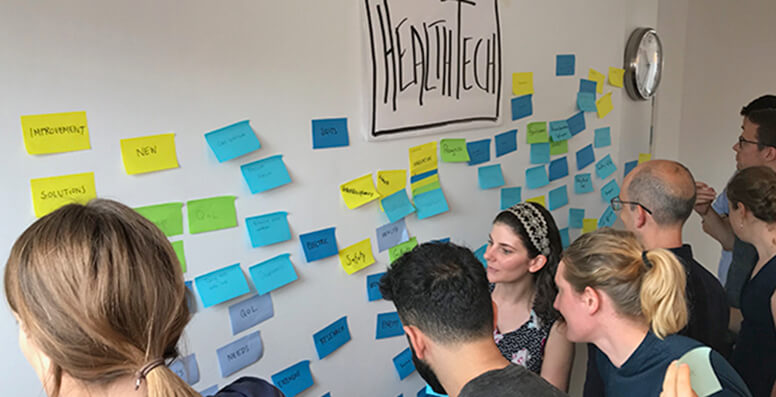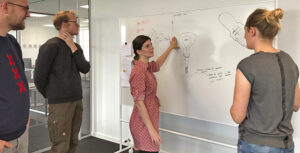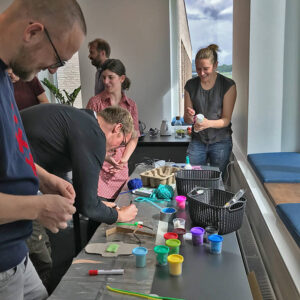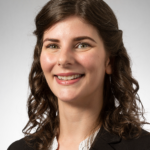
The BioMedical Design Boot Camp – in my words
My name is Chantelle Driever and I am one of the lucky 8 Aarhus fellows for 2019/20. I have a background in biomedical and biomolecular engineering, and in recent years I had a shop selling baby items, so my experience spans both science and business.

Breathtaking beginning
The first days as a fellow were a whirlwind. Heading into the program I was both excited and intimidated knowing that my ‘fellow fellows’ were going to bring a lot to the table. But it is the first time for all of us, and I quickly realized that we were all just as nervous and excited as each other.
Jampacked learning process
The first stage of the fellowship is the Boot Camp and it’s been a crash course in developing the tools and expertise needed as an ethnographic researcher in a hospital setting. Each day we’ve learned something new, and the classes are very hands-on and engaging. In fact, one thing that surprised me was just how exhausted I’ve been at the end of each workday. There is a lot of new information to absorb in a relatively short time frame, but this has actually enhanced my enthusiasm for coming to work each day. I’ve learned to love learning and curiosity again, something that is easy to forget as an adult.
Paint outside the paper
From day one of Boot Camp we were expected to think creatively and outside the box, which helped us learn how to become comfortable beyond our comfort zones. Being crafty and sometimes even borderline silly with ideas is encouraged, so we spent many hours drawing stick figures and playing with hot glue and pipe cleaners.

… and it’s ok to be crazy
The program encourages a safe space where there are no wrong answers; the only person judging you is yourself. As an engineer and high achiever, unlearning the idea of perfectionism was daunting for me, but it will be crucial for the next stages of the program.
Some of the key elements
- Intro to design thinking and a mini run-through of the biomedical design process
- Getting to know the other fellows through short presentations
- Ethnographic methods (Ethnography is the systematic study of people and cultures)
- Learning about our designated field (for me it was ear-nose and throat or ENT in Aarhus)
- Teaming up – finding out our groups of 4 teammates for the remainder of the program
Next step Clinical Immersion
As we enter the next phase of the BMD program where we spend time observing in the hospital, I feel prepared with background knowledge of the field and tools to record relevant observations. There are some aspects of being in the hospital that can’t be taught in the boot camp stage, but with the skills, knowledge and open-mindedness I have cultivated during the first four weeks, I am sure it will be a successful venture.
